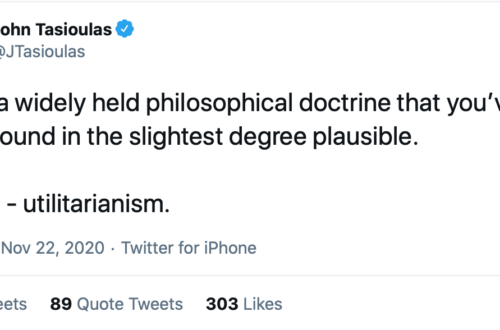 |
| The Discussion by Guttuso |
God, in order to create the world, must be a multiplicity of persons.
A person who has thought has a language. If there is no language then there can be no thinking. In order to create the world God would have to think. He would have to have intentional, highly complex thoughts about laws of nature, complex mathematical theorems, counterfactuals etc. In order to think about the world God would need a language. A picture is not a thought. A picture is of something, but not about anything.
In order to have a language a person needs someone else to speak to. There could not be a private language. A private language is a language that can only be understood by one person. If a person tries to make a private language by naming an internal sensation he will need the use of his non-private language to get at the meaning of the sensation. You cannot name anything without a public/common language.
God, in order to create anything, has to be able to think about it. He cannot think about it unless he has a language, but private language is impossible. Therefore, if God exists and intentionally created the world God must be a plurality of persons.
If one believes that God intentionally created the world, then one should be committed to the doctrine of the Trinity. The doctrine of the Trinity asserts that while God is one he exists eternally in three persons. God is capable of language because he is equally one and three in nature. God thinks in unity as one God and in plurality as three persons. His thoughts are unified since all three persons of the Trinity have exhaustive knowledge of each other’s thoughts. And each person’s thoughts are personal to each member of the Trinity. Consequently, the Godhead is a perfect linguistic community capable of creating the world.
Richard Kortum, “The Very Idea of Design: What God Couldn’t Do,” Religious Studies 40 (2004).
Tom McCall, “Trinity and Creation: Why Kortum’s Argument Fails,” Heythrop Journal XLVIII (2007), 260-266.


